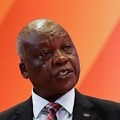Athletics Kenya (AK) has turned up the heat on Paul Kibet Simbolei, the alleged whistleblower coach, labelling him a scam who has been fleecing runners by issuing fake clearance letters.
AK President Isaiah Kiplagat has also denied doping cover-ups and bribery claims made by the coach.
Kibet Simbolei, a former marathoner now turned trainer, accused senior Athletics Kenya officials of receiving money from athletes in exchange of less severe doping bans.
He claimed he had been receiving death threats since he spoke on the doping syndicate in the reports carried by German Television ARD and British Newspaper The Sunday Times.
Athletics Kenya Chief Executive officer Isaac Mwangi told Sportsnewsarena.com that they were stunned by the allegations from a ‘conman’ who is being sought by AK for issuing fake clearance letters.
“His claims on AK officials are baseless. Infact we have been looking for him and a Mr.Derrick Mugirwa for running a parallel clearing agency after being alerted by Embassies and athletes,” alleged Mwangi.
“We have received letters from Embassies forged by the two of them clearing athletes seeking visas for races abroad. They have been forging Athletics Kenya letters and issuing to athletes as purported clearance letters from us.”
Athletes are required to have a mandatory clearance letter from AK before entering races abroad which is also part of the documentation they present to embassies when they are applying for visas.
Simbolei denies claims
Kibet Simbolei, 36, who trains athletes at the Kamariny stadium in Iten has denied the allegations adding that he is now a wanted man over his ‘unpatriotic’ exposé.
“These days I have to operate secretly,” a visibly fearful Simbolei, told SportsNewsArena’s reporter Emmanuel Sabuni in Iten on Sunday, as he nervously scanned his surroundings.
“I never did that. I have never done anything wrong to any athlete or any official. I only told the world how AK is rotten from the inside especially officials who take money from suspected doped athletes to give them a letter to go and compete out the country or run local races,” he said.
Simbolei said he has been reluctant to report his fears to the local police whom he believes have been compromised. He claimed that a friend who is a policeman had warned him of the plot following his unflattering revelations.
“My friend in the police informed me of the plot to kill me and warned me against going to train at Kamariny on a particular day. On that day four plain-cloth police officers were spotted at the training grounds and were asking around for me,” claimed Simbolei as he repeated what he had told the investigative journalists.
“If an athlete is accused of doping, instead of AK banning the athlete, they clear him or her for competitions and get a cut from his earnings. If she is a lady, they can claim she used family planning drugs and if he is a man, they use dubious means to ensure that he competes as long as he gets them their share of his race earnings.”
Kiplagat says doping cover-up is impossible
An accusation that AK president Isaiah Kiplagat denied arguing it was not logically possible to manipulate results that are tested out of the country at neutral centres.
“We send all samples from our local events abroad for testing at an authorized laboratory for lack of a testing center here in the country. Once the results are out they are sent to us, IAAF and the athlete is informed. So how can we alter or cover up results from an overseas testing center?” posed Kiplagat.
“The sanctions are clearly stipulated for each doping offence so the question of leniency is not possible. It is even harder to monitor the out of competition tests because sometimes we are not even aware when they are done and only know when we receive the results.”
Kiplagat said he welcomed the cabinet approval of fast tracking of the establishment of the Anti-Doping Agency of Kenya, ADAK, as AK seeks to streamline the rising doping cases as recommended by the World Anti Doping Agency.
In a meeting convened last Friday at State House Nairobi the Cabinet set out the objectives of the Anti Doping Agency and spelt out its mandate which will include doping control in the country, promote the integrity of drug-free sports in the country and also prosecution.
To date about 34 runners have failed tests and have been sanctioned for doping violations, including former Chicago and Boston winner Rita Jeptoo who is currently serving a ban for EPO.
(SNA)
Meet The Authors
Kenyan journalist Evelyn Watta won the 2014 CNN/Multichoice African sports journalist of the year award. Watta, a former NTV sports editor, was elected vice president of the International Sports Press Association (AIPS) in 2017.






